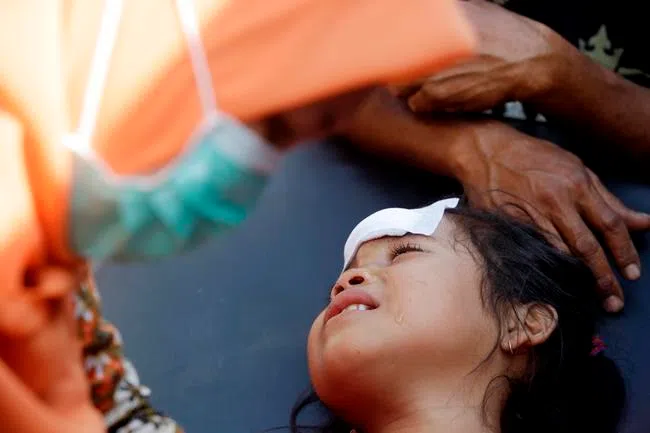
Third strong earthquake shakes Lombok as death toll tops 300
TANJUNG, Indonesia — The Indonesian island of Lombok was shaken by a third big earthquake in little more than a week Thursday as the official death toll from the most powerful of the quakes topped 300.
The strong aftershock, measured at magnitude 5.9 by the U.S. Geological Survey, caused panic, damage to buildings, landslides and injuries. It was centred in the northwest of the island and didn’t have the potential to cause a tsunami, Indonesia’s geological agency said.
Videos showed rubble strewn across streets and clouds of dust enveloping buildings. In northern Lombok, some people leaped from their vehicles on a traffic-jammed road while an elderly woman standing in the back of a pickup truck wailed “God is Great.” An Associated Press reporter in the provincial capital, Mataram, saw people injured by the quake and a hospital moving patients outside.
The aftershock caused more “trauma,” said national disaster agency spokesman Sutopo Purwo Nugroho.
